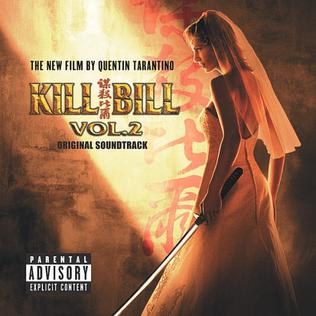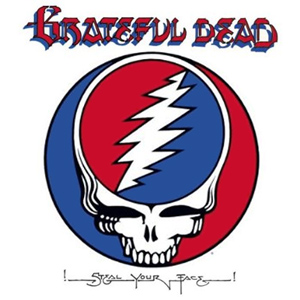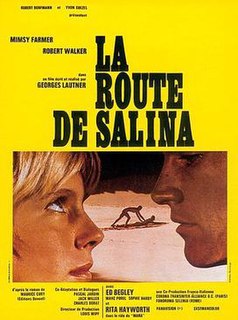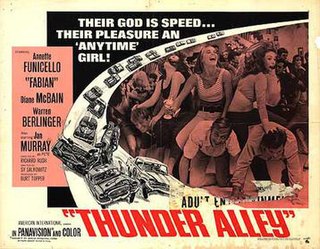Philip Brigham | |
|---|---|
 | |
| Background information | |
| Born | 24 January 1952 Brantford, Ontario, Canada |
| Genres | rock, blues |
| Years active | 1970s—present |
Philip (Phil) Brigham is a Canadian rock singer, composer and guitarist.
Philip Brigham | |
|---|---|
 | |
| Background information | |
| Born | 24 January 1952 Brantford, Ontario, Canada |
| Genres | rock, blues |
| Years active | 1970s—present |
Philip (Phil) Brigham is a Canadian rock singer, composer and guitarist.
Brigham became interested in music from a very early age. He played the saxophone in the school band from 4th to 9th grades, His first major influences were seeing Ricky Nelson on "The Adventures of Ozzie And Harriet" and The Beatles first appearance on The Ed Sullivan Show in February 1964. He didn't start playing guitar until autumn of 1966. He took lessons, and watched how other people played, whether live or on TV, and he listened to a lot of different music.
At the end of his junior year in high school, Brigham moved with his family to Paris, and from 1969 to 1970 attended The American School of Paris. It was in Paris that Brigham met Phil Steele, then known as Phil Trainer. He was a 22- or 23-year-old bass player and vocalist, and he "raided" Philip's high school rock band, taking Phil on guitar, Gerry Murphy on drums, and flute player Chris Hayward. Steele had previously played in Japan and Italy and knew British keyboard player Alan Reeves, then 25 or 26, because Reeves had played in a band called Clinic in both countries, and Phil Steele did some Clinic gigs in Italy. They put together a five-piece band, and because they were British-American, and had some music industry connections, they immediately got signed to a production company, and subsequently were signed to EMI in France.
After signing with EMI France, Reeves' fashion model wife, Albane Navizet, took a bit part in a French film by director Georges Lautner called Road to Salina. Lautner already had French pop singer Christophe on board for a few songs, and some orchestral stuff, but wanted some rock music for his film. He originally wanted Pink Floyd, then popular in Europe though virtually unknown in the U.S., but they were not available, so Clinic got a demo tape together and Albane gave it to Georges Lautner. He liked what he heard. By mostly luck, Clinic were in the right place at the right time, and got the nod to work on the soundtrack. Since the songs were being written individually by Steele, Reeves, or Brigham, or in some combination, they decided to say that all songs were Brigham-Reeves-Steele, to avoid arguments over which songs got shown to the film people.
Some of the seven songs used in the film were written before they saw the sections of film the director wanted music for, but luckily they fit. In a few cases, such as for example "The Chase", they were brand new compositions and really was a collaborative effort between the writers. They were very young when they got the chance to write music for Road to Salina , mostly in their late teens, or early 20s, and young, as in the band had not been together very long. By the time they got to do their own album, Now We're Even (recorded in 1971, released in 1972 in France), they had more of a style, similar to Santana on instruments meeting Crosby, Stills and Nash on vocals. When they were either writing new tunes specifically for the movie, or trying to find songs that fit from songs various Clinic members had written before, they were still trying to find a sound.
Phil Steele was more of a pop guy, influenced by The Hollies, or The Turtles or The Zombies. Alan Reeves had learned jazz piano by his father's side when he was a boy, and had become quite the Hammond organ player, à la Jon Lord from Deep Purple, or Keith Emerson of The Nice and Emerson, Lake & Palmer. Chris Hayward had studied classical music for flute and recorder. Gerry Murphy was a jazz fan but was also the kind of guy that turned everybody on to The Band. Phil Brigham was coming at music like a singer-songwriter, like Donovan or James Taylor or Neil Young, although since Clinic, other musicians think of him more as a rock lead guitarist. Bringing all of those influences together was exciting for the young band, but it took them a long time to figure out how it might all fit.
"The Chase" was put together initially as a jam thing that they wrote specifically for Road to Salina, as opposed to some of the other tunes in that film that were written before it, and they just happened to fit. Phil Brigham started playing "The Chase" by spontaneously playing the guitar riff that opens the tune. Alan Reeves played some rock/classical organ on top of it. At one point, they go to another section with four sustained chords which Alan Reeves came up with, just to get some relief from the repetitiveness of the riff.
Brigham was a senior in high school when Clinic did the soundtrack, and he never saw the totally completed film until later. They would be shown say 1:03 minute's worth of film, and told "put some music of such-and-such type here". When the movie came out, even at age 19, Phil was a little embarrassed at how bad the quality of the production was. The movie was neither a commercial or critical success, but Brigham, Reeves & Trainer all did receive royalties, as the three songwriters from 1972 to 1988. So, while Road to Salina is admittedly "low budget", Phil Brigham feels that if he never took part in it, he would never have gotten a writing credit years later for the Quentin Tarantino film, Kill Bill Volume 2 .
After Clinic, Brigham came to Boston, Massachusetts to go to the Berklee College of Music. He went on to play in scores of bands, duos, and so forth in the local Boston area. In 1981, along with his then-wife Anne English, he co-wrote and recorded a song that made Boston FM-radio Station WCOZ Best of the Boston Beat Volume 2 album. The duo got some nibbles from A&M Records, but ultimately were passed over.
Brigham has enjoyed some success with original instrumentals placed on television between 1990 and the present: an NBC Sunday night made-for-TV movie called Condition Critical and an ABC Sunday night movie, I Saw What You Did, starring Rosanna Arquette. Also Jerry Springer, Ricki Lake, 20/20, Nickelodeon's The Adventures of Pete & Pete and Lifetime's Intimate Portrait, with Stefanie Powers.
At first Brigham had no idea "The Chase", from his time with Clinic scoring Road to Salina, was going to be in a Tarantino film. When he found out, he was guessing that Tarantino saw Road to Salina and remembered the parts of it that are kind of impressive, the desert cinematography, for example. In Road to Salina, they play "The Chase" for the first time in a scene not unlike the way "The Chase" is used in Kill Bill Volume 2 , with a car speeding across the desert on its way somewhere. Phil later discovered more about how "The Chase" music got in Kill Bill Volume 2.
"It turns out that Julie Dreyfus, who plays Sofie Fatale in Kill Bill , knew that Quentin Tarantino was looking for music, and her father, Francis Dreyfus had the rights to quite a lot of soundtrack music, including Road to Salina. The soundtrack called "La Route De Salina" was re-released, on CD by Dreyfus Records in 2003. Curiously, there's at least one Clinic song, "Come On Come On" that's in the movie, but not on the LP, and vice versa. A song called "Jacqueline" is on the LP but not in the movie." - Philip Brigham, March 22, 2005 [1] [2]

Philip James Selway is an English musician and the drummer of the English rock group Radiohead. Along with the other members of Radiohead, he was inducted into the Rock and Roll Hall of Fame in 2019. Selway has released two solo albums, Familial (2010) and Weatherhouse (2014). He also composed the soundtrack for the 2017 film Let Me Go.

Almost Famous is a 2000 American comedy-drama film written and directed by Cameron Crowe and starring Billy Crudup, Frances McDormand, Kate Hudson, and Patrick Fugit. It tells the story of a teenage journalist writing for Rolling Stone in the early 1970s, his touring with the fictitious rock band Stillwater, and his efforts to get his first cover story published.

Juno Reactor is an English musical and performing group known for their cinematic fusion of electronic, global influences, and orchestral symphonic approach, collaborating with composer Don Davis and composing for the musical score of The Matrix . Central to the project is Ben Watkins and his collaborations with a constantly changing ensemble of musicians from across the world. This ensemble has included Mabi Thobejane, Amampondo, Steve Stevens, Eduardo Niebla, Greg Ellis, Taz Alexander, Sugizo, Budgie and recently Hamsika Iyer and Maggie Hikri.

Inglourious Basterds is a 2009 war film written and directed by Quentin Tarantino and starring Brad Pitt, Christoph Waltz, Michael Fassbender, Eli Roth, Diane Kruger, Daniel Brühl, Til Schweiger and Mélanie Laurent. The film tells an alternate history story of two plots to assassinate Nazi Germany's leadership, one planned by Shosanna Dreyfus (Laurent), a young French Jewish cinema proprietor, and the other by the British but ultimately conducted solely by a team of Jewish American soldiers led by First Lieutenant Aldo Raine (Pitt). Christoph Waltz co-stars as Hans Landa, an SS colonel in charge of tracking down Raine's group. The title was inspired by Italian director Enzo G. Castellari's macaroni combat film The Inglorious Bastards (1978), though Tarantino's film is not a remake of it.

Vision Quest is a 1985 American coming-of-age romantic drama film starring Matthew Modine, Linda Fiorentino, Michael Schoeffling and Ronny Cox. It is based on Terry Davis' 1979 novel of the same name. Modine plays a Spokane high school wrestler who falls in love with an older woman, an aspiring artist from New Jersey on her way to San Francisco.

The Last Waltz was a concert by the Canadian-American rock group The Band, held on American Thanksgiving Day, November 25, 1976, at Winterland Ballroom in San Francisco. The Last Waltz was advertised as The Band's "farewell concert appearance", and the concert saw The Band joined by more than a dozen special guests, including their previous employers Ronnie Hawkins and Bob Dylan as well as Paul Butterfield, Bobby Charles, Eric Clapton, Neil Diamond, Dr. John, Joni Mitchell, Van Morrison, Ringo Starr, Muddy Waters, Ronnie Wood, and Neil Young. The musical director for the concert was The Band's original record producer, John Simon.

Virgin Steele is an American heavy metal band from New York, originally formed in 1981.

John Lyon, better known by his stage name Southside Johnny, is an American singer-songwriter who usually fronts his band Southside Johnny and the Asbury Jukes.

Music from the Motion Picture Pulp Fiction is the soundtrack to Quentin Tarantino's 1994 film Pulp Fiction. No traditional film score was commissioned for Pulp Fiction. The film contains a mix of American rock and roll, surf music, pop and soul. The soundtrack is equally untraditional, consisting of nine songs from the movie, four tracks of dialogue snippets followed by a song, and three tracks of dialogue alone. Seven songs featured in the movie were not included in the original 41-minute soundtrack.
"Orpheus" is the second single released in a physical format from the Meltdown album by the band Ash. It was released on 3 May 2004 and reached number 13 on the UK Singles Chart. It was released as a single CD as a gatefold 7" vinyl, as well as on DVD format. It was nominated for the Kerrang! Award for Best Single.

Kill Bill Vol. 2 Original Soundtrack is the soundtrack to the second volume of the two-part Quentin Tarantino film, Kill Bill. First released on April 13, 2004, it reached #58 on the Billboard 200 and #2 on the Billboard soundtracks chart in the US. It also reached the ARIA Top 50 album charts in Australia. It was orchestrated by Tarantino's fellow filmmaker and personal friend Robert Rodriguez, as well as RZA from the Wu-Tang Clan.

Grindhouse is a 2007 American film written and directed by Robert Rodriguez and Quentin Tarantino. Presented as a double feature, it combines Rodriguez's Planet Terror, a horror comedy about a group of survivors who battle zombie-like creatures, and Tarantino's Death Proof, a slasher about a murderous stuntman who kills young women with modified vehicles. The former stars Rose McGowan, Freddy Rodriguez, Michael Biehn, Jeff Fahey, Josh Brolin, and Marley Shelton; the latter stars Kurt Russell, Rosario Dawson, Vanessa Ferlito, Jordan Ladd, Sydney Tamiia Poitier, Tracie Thoms, Mary Elizabeth Winstead, and Zoë Bell. Grindhouse pays homage to exploitation films of the 1970s, with its title deriving from the now-defunct theaters that would show such films. As part of its theatrical presentation, Grindhouse also features fictitious exploitation trailers guest directed by Rodriguez, Rob Zombie, Edgar Wright, Eli Roth, and Jason Eisener.

Steal Your Face is a live double album by the Grateful Dead, released in June 1976. The album was recorded October 17–20, 1974, at San Francisco's Winterland Ballroom, during a "farewell run" that preceded a then-indefinite hiatus. It was the fourth and final album released by the band on their original Grateful Dead Records label. The Grateful Dead Movie Soundtrack, a second album from the same run of shows, was released in 2005.

Orchestra Wives is a 1942 American musical film by 20th Century Fox starring Ann Rutherford, George Montgomery, and Glenn Miller. The film was the second film to feature The Glenn Miller Orchestra, and is notable among the many swing era musicals because its plot is more serious and realistic than the insubstantial storylines that were typical of the genre. The movie was re-released in 1954 by 20th Century Fox to tie-in with the biopic The Glenn Miller Story.

Death Proof is a 2007 American horror film written and directed by Quentin Tarantino. It stars Kurt Russell as a stuntman who murders young women with modified cars that he purports to be "death-proof". Rosario Dawson, Vanessa Ferlito, Jordan Ladd, Rose McGowan, Sydney Tamiia Poitier, Tracie Thoms, Mary Elizabeth Winstead, and Zoë Bell co-star as the women he targets.

Road to Salina is a 1970 French-Italian psychological thriller film directed by George Lautner. It stars Robert Walker, Mimsy Farmer and Rita Hayworth. The film is based upon Maurice Cury's novel Sur la Route de Salina. A French-Italian coproduction, it was shot in English in the Canary Islands. Interiors were shot at the Billancourt Studios in Paris with sets designed by the art director Jean d'Eaubonne.

Thunder Alley is a 1967 film about auto racing directed by Richard Rush and starring Annette Funicello and Fabian Forte. It was released by American International Pictures.

Kill Bill Vol. 1 Original Soundtrack is the soundtrack to the first volume of the two-part Quentin Tarantino film Kill Bill. Released on September 23, 2003, it reached #45 on the Billboard 200 album chart and #1 on the soundtracks chart. It was organized, and mostly produced and orchestrated by RZA from the Wu-Tang Clan.

The Hateful Eight is the soundtrack album to Quentin Tarantino's motion picture The Hateful Eight. The soundtrack includes the first complete original score for a Tarantino film and is composed, orchestrated and conducted by Ennio Morricone. Morricone composed 50 minutes of original music for The Hateful Eight.
Quentin Tarantino's Once Upon a Time in Hollywood is the soundtrack from the 2019 film, Once Upon a Time in Hollywood, written and directed by Quentin Tarantino. The film also contains numerous songs and scores not included on the soundtrack.